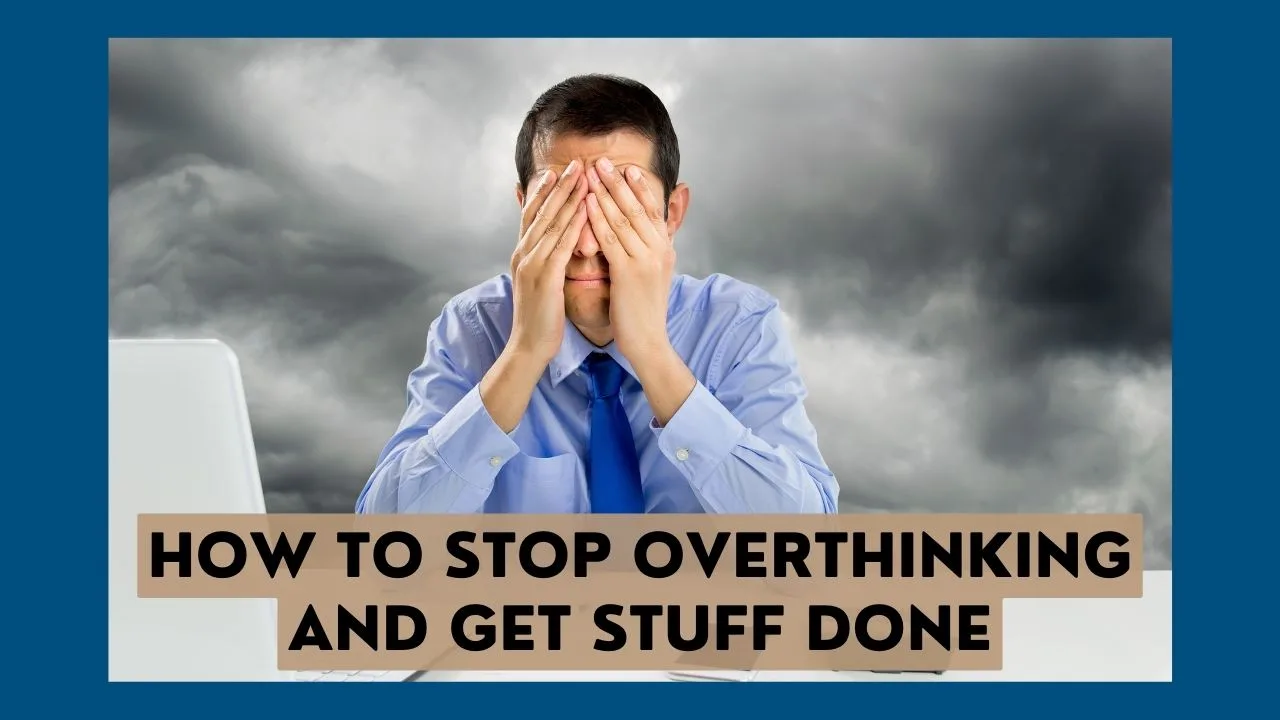Overthinking can be a real roadblock when it comes to achieving our goals and living a fulfilled life. It’s that constant loop of negative thoughts, self-doubt, and analysis paralysis that keeps us stuck in our heads, preventing us from taking action. But fear not! In this article, we will explore the different types of overthinking, how it arises, provide examples of overthinking, and most importantly, offer detailed steps with examples to help you take action despite overthinking.
Understanding the Different Types of Overthinking
Before we delve into the practical steps, let’s first understand the different types of overthinking that can plague our minds:
- Rumination: This is when we replay past events or conversations in our minds, often focusing on the negative aspects and obsessing over what we could have done differently.
- Catastrophizing: This type of overthinking involves imagining the worst-case scenarios and blowing them out of proportion. It’s like creating a horror movie in our minds.
- Analysis Paralysis: When faced with a decision, analysis paralysis kicks in, and we get trapped in a cycle of overanalyzing every possible outcome, making it difficult to make a choice.
How Overthinking Arises and Its Impact
Overthinking often arises from a combination of factors such as fear of failure, perfectionism, low self-esteem, and past experiences. It can lead to a variety of negative consequences:
- Increased stress and anxiety levels
- Procrastination and missed opportunities
- Strained relationships due to overanalyzing interactions
- Decreased self-confidence and self-belief
Examples of Overthinking
Let’s take a look at a few examples of overthinking to help you identify if you’re caught in this pattern:
Example 1: Sarah received a compliment on her presentation at work, but instead of feeling proud, she starts overthinking and questioning if her colleagues were being genuine or just trying to be polite.
Example 2: John has been contemplating starting his own business for years. However, he constantly overthinks every aspect, worrying about potential failure, and never takes the first step.
Steps to Take Action Despite Overthinking
Now, let’s dive into the practical steps you can take to stop overthinking and start taking action:
1. Recognize and Challenge Your Thoughts
Start by becoming aware of your overthinking patterns. When you catch yourself overthinking, challenge those thoughts by asking yourself:
Is this thought based on facts or assumptions?
What evidence do I have to support or refute this thought?
What would I say to a friend who has the same thought?
By challenging your thoughts, you can gain a more balanced perspective and reduce the power of overthinking.
2. Practice Mindfulness and Grounding Techniques
Mindfulness and grounding techniques can help you stay present and prevent your mind from wandering into overthinking territory. Try:
Deep breathing exercises
Meditation or guided visualization
Engaging your senses by focusing on the present moment
These practices can help calm your mind and bring your attention back to the present, reducing overthinking tendencies.
3. Set Realistic Goals and Break Them Down
Setting realistic goals and breaking them down into smaller, manageable steps can help alleviate the overwhelm that often leads to overthinking. Start by:
Identifying your ultimate goal
Breaking it down into smaller milestones
Creating an action plan with specific tasks for each milestone
By focusing on one step at a time, you can shift your attention from overthinking to taking action.
4. Embrace Imperfection and Learn from Mistakes
Perfectionism fuels overthinking. Embrace the idea that it’s okay to make mistakes and that they are opportunities for growth and learning. Remember:
Progress is more important than perfection
Mistakes are part of the learning process
Each failure brings you closer to success
By embracing imperfection, you can free yourself from the shackles of overthinking and allow yourself to take risks.
5. Take Action, Even if it’s Small
Ultimately, the most effective way to overcome overthinking is to take action. Start with small steps and gradually build momentum. Remember:
Progress comes from consistent action
Each small step counts towards your larger goal
Don’t wait for the perfect moment, create it
By taking action, you disrupt the overthinking cycle and build confidence in your ability to move forward.
Now that you have a clear roadmap to stop overthinking and take action, it’s time to put these steps into practice. Remember, change takes time and effort, but with persistence and a commitment to breaking free from overthinking, you can achieve your goals and live a more fulfilling life.
Discover More on Getting Stuff Done
How to Overcome Procrastination: A Comprehensive Guide to Achieving Your Goals


